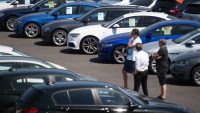Remote driving on public roads could become a reality in the coming years after a statutory body launched a call for evidence on how it should be regulated.
The Law Commission of England and Wales has published a paper on how vehicles on public roads could be controlled by an individual who is potentially several miles away.
Remote driving technology is already in use for moving vehicles in controlled environments such as warehouses, farms and mines.
The paper highlights safety challenges such as the consequences of connectivity between driver and vehicle being lost, how drivers can be aware of a vehicle’s surroundings, and how unauthorised takeover of vehicles can be prevented.
Under current road traffic law, there is no express legal requirement for a driver to be within their vehicle, but a number of regulations are ‘problematic’ to remote driving, according to the commission.
The Department for Transport asked the commission to review the legal status of remote driving.
Public Law Commissioner Nicholas Paines QC said: ‘Remote driving technology is already capable of being used on our roads.
‘We hope our issues paper can contribute to a healthy debate about the appropriate regulation of this technology and what can be done to maximise protection of road users while encouraging innovation.
‘We look forward to hearing views on the challenges and possible ways to solve them.’
Jack Cousens, head of roads policy for the AA, compared the review to James Bond, who famously drove a remote-controlled BMW in the 1997 film Tomorrow Never Dies
He said: ‘James Bond gave the world a peek into the future in 1997.
‘The real world has finally caught up with those silver screen ambitions.
‘While trials of remote driving are currently under way in Milton Keynes, extending the capability to potentially allow all drivers to sit miles away and ‘drive’ a car will need extensive testing, tough regulation and a conversation that brings the public along for the journey.
‘While not wishing to stand in the way of progress, most drivers just want the basics solved, such as keeping roads pothole-free.’


































